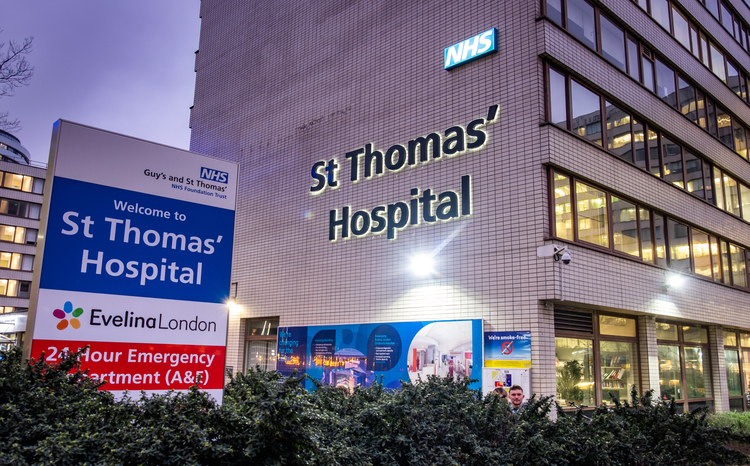Space programme
- 10 April 2006

The NHS Direct website HealthSpace has been up and, if not quite running then certainly strolling along nicely for a while. At the moment, the public can register and enter their personal health details; it’s a bit like a "My Health Blog".
So far, the HealthSpace protal site seems most likely to appeal to the worried well, and it’s easy to imagine members of the public making Bridget Jones-style entries like, "Monday: Smoked 12 cigarettes, drank 8 glasses of wine, when will that beastly Mr Darcy ever propose?"
But eventually it is intended that the portal will be a lot more than a perosnal health blog. Instead, it should provide the means for patients to access their electronic records. For this to happen will first require the national system of NHS Care Records to be in place – a project that is currently running late.
According to NHS Direct the plan is to begin to rollout patient access to NHS CRS through HealthSpace by about 2008, though no firm date has yet been committed to.
Self-storing information
HealthSpace was initially developed by NHS Direct Online and, according to NHS Direct, the online portal provides "a secure place on the internet where you can store all your personal health information."
It has links to Choose and Book, a calendar where people can keep track of medical appointments and record their medications and a directory of local services.
Sarah Jackson, patient access lead for HealthSpace, says: “You can put in information about yourself such as your weight, your alcohol consumption and monitor these over time. There is also existing functionality, for example to keep calendar appointments and receive reminders for them.”
Currently about 9000 people have put their details on HealthSpace; hardly overwhelming demand. “It is a pilot project at this stage and we have done nothing to promote it,” explains Ms Jackson. “It will be developed over the next few years.”
The biggest piece of work on the agenda is giving people access to their summary record, something regarded as a good thing by most doctors and patient representative groups.
Frances Blunden, principal policy adviser at Which? says: “Giving patients access to their own records brings benefits for everyone, especially as we see care fragmented under the choice initiative.”
Current government policy promotes the “expert patient” – someone well informed about their condition and taking responsibility for their health in partnership with their doctor.
More than simple access, though, Jackson envisages HealthSpace developing to the point where the system can personalise healthcare information for individual patients.
“For example, if you have been diagnosed with heart failure then HealthSpace would be able to put you in the direction of evidence based treatments around heart disease so you can have more valuable conversations with your doctor.”
Another scenario might see a patient prescribed a drug and go to HealthSpace to find out more about it.
“This is blue skies thinking,” she admits. “We are in the early stages and have not got far with the details of how to do this yet.”
Security issues
The British Medical Association likes the idea. Dr Vivienne Nathanson, head of science and ethics, says: “A project like this gives patients the opportunity to access tailored health information linked to their personal medical history, which is definitely to be welcomed. It also has the potential to allow NHS resources to be targeted towards local populations’ specific needs.”
But she has concerns too. “It is crucial that there are appropriate safeguards and quality control in place. The system will only work if the information it contains is accurate and up to date.”
NHS CfH has given some thought to confidentiality. It envisages a system where people register with the service and prove who they are. Access will then be based on unique user names and passwords as well as a token-based system in which a plug-in device generates a single-use code. It’s a system already on trial in internet banking.
That doesn’t answer the question about the teenager who doesn’t want their parents to see what’s on their health record. “It’s absolutely clear that that there must be some way for a competent teenager to stop their parents seeing their written records,” says Dr Nathanson.
“This is where the idea of the sealed envelope comes in,” she adds. And in this case it’s going to have to be not just sealed but invisible too. “You can’t have parents seeing that there is a sealed envelope.”
Blunden has concerns about consent. “People need to consent to their information being shared and who it is shared with. There are a lot of discussions at the moment about this but they are not being fully developed from the patient’s perspective.”
What about accuracy, she asks. “There has to be some way to handle disputes about the content of records.”
For Ms Jackson this is more to do with patient safety than conflict resolution. “It is one of the biggest benefits,” she says. “By giving access to the summary record patients can check information is correct and if not then go back to the GP to update it.’
Summary records
So far, so good. Several outstanding questions remain, however. First, is a summary record clinically useful?
Possibly not. At the recent Healthcare Computing conference in Harrogate a speaker likened it to having internet banking that gives access only to summary statements. Customers need to be able to examine each transaction.
Blunden also questions the value of summary records, pointing to the work of GP Richard Fitton who, with EMIS, is piloting giving patients electronic access to their full record.
“You engage people more in their healthcare which is a general policy objective,” she says. “People also take more responsibility for their own health if you treat them like adults.”
Dr David Stables, founder of EMIS and now pioneering work on electronic access to patient notes also has reservations about the expense token systems. “France and Germany are going down this route and charging patients £5 a month for it. Bearing in mind we are talking about people with long term conditions and the elderly, the cost maybe a bit outside what they can afford,” he says.
An additional and new role for HealthSpace may yet take it back to its beginnings in NHS Direct Online. January’s white paper Our health, our care, our say, envisages an NHS Life Check which people can fill in themselves to check their risk factors for various diseases.
The life check itself will be available at NHS Direct Online, it said. “Where people complete the self-assessment on-line they will be able to store it in their own personal HealthSpace as part of their lifelong personal health plan.”
And for that the preparation has only just started.




